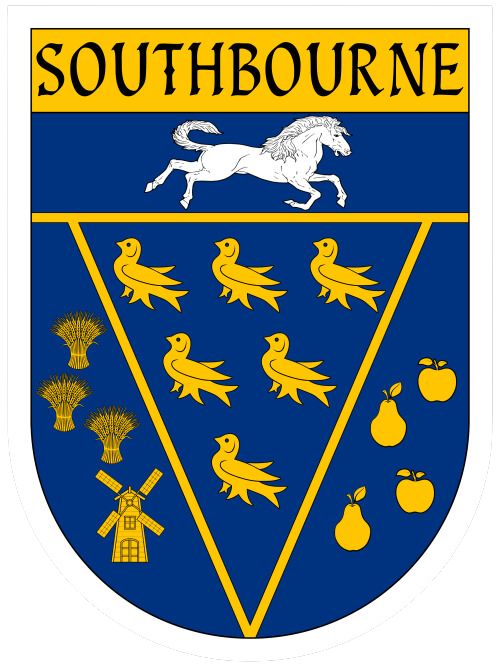The Free Church by David Treagust
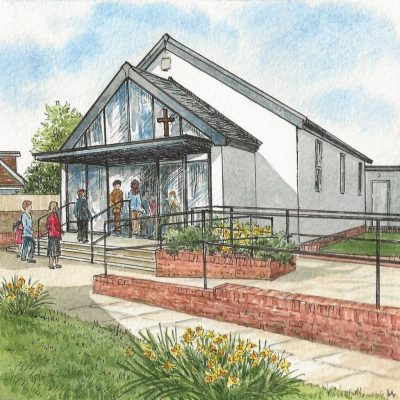
Recollections of the Southbourne Free Church by David Treagust 1963 - 1971
When Mr Young resigned as President in 1962 it fell to me, as the ‘Vice-President’ to pick up the reins and begin the process of trying to find a new leader for the church. Initially, I was quite prepared to arrange for visiting speakers, assist with the preaching and conduct the weekly Bible Study but always with the understanding that I was the temporary caretaker. As the months and years went by and we failed to find a suitable pastor it became necessary for me to fill the position of pastor myself. Naturally enough at first I had not taken communion services, dedications, weddings or funerals but all of these became essential as time went on. I experienced God’s strength and enabling where I personally felt most deficient.
My first funeral was a rapid learning experience. Shirley Churchill, one of our Sunday School children, was killed in a road accident at the junction of Garsons Road with the Main Road in Southbourne. We knew the family and I had been in the same class at Primary School with Rita’s elder brother Brian. Maybe I could have asked a minister from another church to conduct the funeral but the family asked me to do this for them as we were their connection with the Free Church, so I went ahead myself. I really do believe the parents received some comfort, but I now know from my own experience just how inadequate this can be.
Our search for a new leader was not very successful. Humanly speaking we could offer very little apart from the opportunity for hard work. Southbourne had never had a paid leader, pastor or president. Mr Young had been given a very small sum each week to assist with his fares from Emsworth to Southbourne but there was no concept of paying a person a wage. Neither did the church have accommodation to offer. Our immediate thoughts went to two men, both well-known to the Southbourne congregation: David Leaver and John Warren.
David had come from Southbourne originally and often visited us as his wife was the daughter of Mr and Mrs Hodder but he had moved to Oxford around 1950 and was still in employment. I think he actually knew the church too well and even when he retired and moved away from Oxford he was not drawn to Southbourne! To us he seemed ideal as he had a great interest in children’s ministry and was a gifted speaker, he had great energy and a wife who would support him and provide leadership for women’s work.
John Warren had been one of our visiting preachers since the mid-1950s, he retired and settled in Westbourne and gave invaluable support to Westbourne Baptist Church but we would have liked him and Joan for ourselves at Southbourne. They were very loving, caring and supportive. John ‘dedicated’ each of our children for us.
For a while, we were in contact with South Wales Bible College to see if they had any young men interested in the pastorship. We did have a useful contact with Brian and Denise Mockford as a result of this contact but no wages or accommodation were two obstacles not easily overcome. In fact we received a fairly stern letter from the principal of the Bible College telling us that we did not really have the right to expect any of his young graduates to respond to our need. He was completely honest. Eventually, when it was time for us to move on, God made someone available, but this will be recorded later.
Naturally, the congregation of the Free Church was our extended family. There were just a few who exerted a considerable influence and example but I doubt that they ever knew it. I’ve always been amazed at the paradoxes of Christianity. The ‘King of Kings’ born in a manger; mere parables to throw light on the Kingdom of Heaven; Jesus washing the disciples feet; and twelve very ordinary men left behind to ‘Go into all the world and preach the Gospel’. My special favourite has always been the woman who gave her only two coins to the Temple treasury. Jesus said she had given more than all the rest, but of course, she hadn’t if you just counted up the money. There were plenty of simple folk at Southbourne who contributed their ‘two pennyworth’ of talent and let God provide the increase. I’ll mention a few who particularly encouraged Cherry and myself.
Perhaps babysitters have to have a high priority considering how rapidly our family increased. Mr and Mrs Hodder were the first couple to be married in the Free Church and they were our close friends despite us being generations apart. Mr Hodder was Church secretary for many years. To be honest he was never actually the Church secretary, I was doing all the correspondence, Mr Hodder was the odd-job-and-turn-the-radiators-on-early-on-cold-frosty-mornings-man. This is so much more important than writing letters, such a person is absolutely necessary in every church. You can forgive and forget a poor sermon but freezing feet and shivering bodies can empty churches faster than suspect theology. There was an infuriating side to his character as well. I remember my first church AGM when half the meeting was taken up by Mr Hodder and others trying to decide what to do about the light shades. He died very suddenly in 1968. I commented at his funeral that there was a ‘bob-a-job’ Scout’s sticker on their front door with the words ‘Job Done’. He had done his job well.
Mrs Hodder was known as ‘Auntie Hodder’ to the children because they saw her so often, sometimes as a babysitter, frequently as a visitor to our house and also as someone we often popped in to see. Her brother Tom Savage from Westbourne sometimes preached at the church. Their daughter Edith is married to David Leaver so this has provided a continuing link. Mrs Hodder reminds me most of the ‘woman with the two pence’. She was such an encouragement and help, far beyond her intellectual capabilities. I appreciated Mr Freeman’s comment to the local paper when the refurbishment of the old church was completed in 1977, all the volunteer workers had been sustained over the months by Mrs Hodder’s endless supplies of tea.
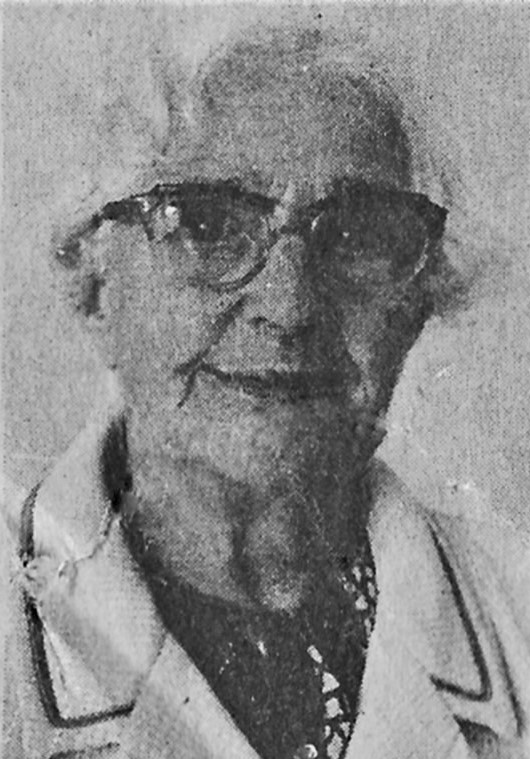
Mrs Worral, who lived in The Drive, joined the church when the journey to Emsworth Baptist became too much for her. As I’d grown up just a few doors away from her we did know each other quite well but it was not until she was infirm and we did some home visiting that we found another Mrs Worral lurking in her sitting room. We knew her as a very spiritually minded, aged, gentle lady, I’ve no doubt she was all of this, but she was also an avid sports fan and the maker of a really first-class apricot jam. Our children loved to visit because she also had a sweet tooth and would share her goodies. She never mentioned her past but she had ‘lost’ her husband during the Bolshevik uprising in Russia during the early years of the century. I was never sure if he had died at that time or if he had stayed on in Russia when his wife was evacuated back to England.
Mrs Titheridge was one of the most loyal members of the church. Different people would describe her in a number of conflicting ways. For some, she was perhaps a thorn in the flesh but for others, she was a generous benefactor; for some a sharp-tongued adversary but for others a spiritual counsellor. Mrs ‘T’ as I always knew her was all of these and much more. I remember avoiding her when I was a boy of about 15 because I knew of her critical reputation. I thought she was an old lady then but she must have only been in her early 50’s. She owned and ran an old people’s home in Emsworth while her husband had a motor mechanics business next to their property in Southbourne. She was one of the very few people who could have been described as ‘better-off’ amongst the old church members. For many years she had the added responsibility of looking after her elderly parents who both lived well into their nineties and were also church members. In the mid 1960’s, once she had sold her business and retired, Mrs Titheridge became the church organist, leader of the Sisterhood (not a secret society, just a quaint name for the Women’s Fellowship) and a member of the Church Committee. She also sang solo if encouraged, but I never felt able to offer this sort of encouragement. As a benefactor, (or should this be benefactress?) Mrs Titheridge bought the church its first electronic organ and paid for a baptistry to be included in the newly renovated building in 1977. All the time we were overseas she was faithful in writing to us and praying for us. When we were about to return to Papua New Guinea at the beginning of 1980 Mrs Titheridge became very ill whilst living with her son Neville in Brighton. We considered delaying our departure to attend her funeral. That would have been a lengthy mistake, as she didn’t die until 1995!
Who else should I mention amongst the older generation of church members? Mr and Mrs Marshall and Mrs Soper were the last survivors from the original Prinsted congregation. Mr and Mrs Alf Clarkson, whose daughters Eileen and Beryl were once very active in the church, were part of the evening congregation. Alf was an odd-job-builder-man who was sometimes employed by the church to do the things that volunteers could not manage. Cherry always rated Mr Clarkson’s singing very highly. Old Mr and Mrs Bond were newcomers to the village who rapidly endeared themselves to us. Similarly with Mr and Mrs Haylock who came to live with a married daughter in Garsons Road. Mrs Haylock became senile but was lovingly cared for by her husband who survived her by several years. He was so gracious and loving and we often chatted together. When he gave up his pipe Mr Haylock gave me his tobacco money for the church Building Fund, but I had to keep it a secret and never mention it in his daughter’s house. It would seem that she did not approve of his Free Church affiliation and later both the old folk were buried from the Parish Church.
Mr and Mrs Law were newcomers to the village just before Steven was born. They were Londoners and members of Westminster Chapel, a part of Dr Martin Lloyd Jones’ congregation. They came to the south coast on doctor’s orders for the good of Mr Law’s health. I think Mr Law ranks very highly on Cherry’s list of perfect gentlemen, maybe even equal first with David Leaver. In conversation, Mr Law was always polite, interested and informative. In manners, he was impeccable and considerate. He introduced Southbourne to the Worker’s Educational Association and ran WEA evening classes at the Bourne School. Mrs Law was equally prim and very, very proper. She was a good friend to Cherry and helped us as a babysitter many times, sometimes when she hadn’t even been asked. After leaving Westminster Chapel Mrs Law was seeking the next most perfect church. Surprisingly she stayed with us at Southbourne for a good number of years and now looks back on them with some nostalgia. We became friends with their son Tony and his family and occasionally exchanged houses with them so that they could visit their parents without having to actually live with them. Although approaching 100 Mrs Law is still a very faithful friend and we visit her in Essex when we can. [2015 update: long since departed but she was still lively at 100+.]
Betty Hedgecock was very much a mainstay of the church until she became disappointed with its ministry during the early years of the charismatic movement and moved over to Emsworth Baptist Church. Betty was an excellent organizer and minute secretary who used her home for most of the YLC (Young Life Campaign) meetings once these became too small to be held at the church. She was also a most capable leader of the Sisterhood for a number of years and had a great interest in the work of the European Christian Mission (ECM). For a long time her prayer was that her husband, Arthur, would become a Christian and this was eventually answered. Betty’s mother, Mrs Nicholas was also a member of the church but for most of the time that I knew her she was bedridden. Under the influence of her friend Marjorie Howells, Betty became altogether too starchy and was the cause of me once walking out of the midweek Bible Study when she disapproved, scowlingly, with some comment I had made. We did repair the relationship very quickly. Marjorie was the first person I ever heard speaking in tongues; she was very much a Pentecostalist but was always sick. I suppose it was a bit unkind of me to wonder a little about the state of her health. Betty now lives in what I always thought was a home for retired missionaries in the Midlands. I understand that Marjorie is also there, this is amazing as Majorie ‘knocked loudly’ on death’s door several times when we knew her well in the 1960’s.
Just across the road from where Betty lived was the home of Mr and Mrs Wheatley. They were members of an evangelical Anglican church in Chichester and also hosted YLC meetings particularly when they had people from the Red Sea Mission Team staying with them. Mr Wheatley died around 1960 but Mrs Wheatley moved into Chichester and survived until the mid 1980’s. Even in the frailty of her old age she was the keenest supporter of the Red Sea Team. I was the keenest supporter of her sponge cakes!
So far I’ve mentioned some of the church congregation who were perhaps 30 to 50 years our senior. There were a few others who were just a little older than ourselves. Rene and Jean Prankard are still in membership with Rene, now retired from midwifery in Portsmouth, one of the present stalwarts. [2015 update: Regrettably Rene no longer attends any place of worship] Rene started as a helper with Mrs Titheridge in her Old Peoples Home and then went into nursing. Jean married Harry Hotson, a young man from Westbourne Baptist Church. I considered this to be a most surprising partnership as Harry never appeared to be at all normal but the marriage lasted for 35 years or so until Harry’s death after many years of illness.
David and June Brunnen were another church romance.
David was my Sunday School teacher and a friend for many years. June came to the village from Portsmouth to work in The Laurel Stores and became a Sunday School teacher. June is now leader of the Sisterhood or rather the Ladies Fellowship as it is now called. [This was all written in 1998. Update 2015: sadly their daughter Ruth died a few years ago. This bereavement drew us together somewhat. David died in 2016]
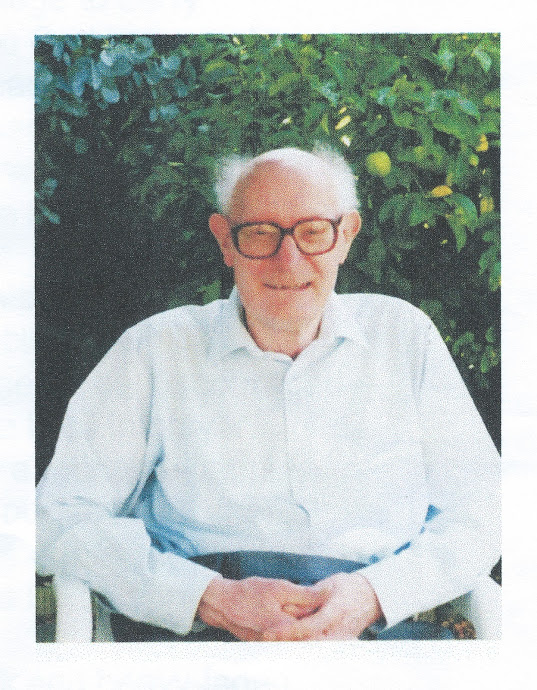
I think one of the most useful things I ever did at Southbourne Free Church was to commence a Building Fund. The church generally looked in poor condition with its corrugated iron roof and walls, peeling paint and interior wood-wormed panelling. It was obvious to me that at sometime in the future something drastic would need to be done and that the congregation was generally poor so we would have to save for a long time. Ten years later we had almost £8000. This was just about sufficient for Mr Freeman, who succeeded me at the Free Church, to put on a new lightweight roof, renovate both the exterior and interior, put a new floor in the school room and add a kitchen and classroom. To all intents and purposes, it became a new building which was completed in 1977 whilst we were in Rabaul.
If I had been instrumental in a miracle of provision of funds Mr Freeman was instrumental in a further miracle of making these funds go a very long way indeed. I really had thought that the structure of the building was unsound and that it would be necessary to pull it down and rebuild – hence I thought of it as a ‘Rebuilding Fund’. My plan was to sell the small piece of land at the back of the church as a housing plot and use this money as a substantial boost once we had reached about half of what we would need for rebuilding. Mr Freeman took off some of the interior paneling and had the main structure surveyed. Apparently, the main framework was of oak with several centuries of useful life remaining. Renovation and restoration were required rather than demolition and rebuilding. This was not the answer we had expected to our prayers but a better solution altogether.
Raising this sum of money during the 1960’s was something of a minor miracle and it wasn’t all my own effort. Looking back I suppose I did have most of the ideas and I was needed to get things started but there were plenty of people who gave their support and encouragement in such a way that it made my work lighter. How did we raise this money is a question I ask myself? I can remember many of the events and activities, but numerically they do not come anywhere near to £8000, let us say that God provided the increase! I found that I enjoyed raising money for the Building Fund more than working for my own living, there was much more fun in it and seeing what has been done with the money makes it even more worthwhile in retrospect.
From the beginning individual gifts from church members were supposed to be the mainstay of the Building Fund. There were four team leaders who were to collect a small sum of money from their group each week or month. This was more theoretical than actual and did not amount to a great deal although it did keep the record book ticking over in between special events. A second strand of giving was through ‘work’. A few of us did extra jobs and put the money into the Fund. For me, it was frequently grass cutting but for a couple of years, I also made small pictures with decorative texts. Dear old Mrs Hodder never stopped sewing and must have made hundreds of really useful peg bags in those 10 years. She would buy an old dress for six pence at a jumble sale and turn it into £5 or £10 by the end of the week. When the renovations were in hand I’ve already mentioned that Mrs Hodder was there every day making tea. Mrs Titheridge was very much the same with her crochet. Betty Hedgecock’s mother, Mrs Nicholas was confined to her bed and, humanly speaking, hadn’t any possibility of ever seeing a new church. She did various pieces of sewing and maintained a little ‘shop’ in her bedroom and encouraged her visitors to buy something for the Building Fund. For several years we also organized coach trips for summer evenings but these stopped once it became difficult to sell tickets when more people had private cars.
One very popular money-raising scheme was regular Musical Evenings. A collection would be taken and additional money came from a few stalls selling sewing, jam and cakes. Such an evening provided my first contact with the Cowplain Free Church Choir who came several times over the years to sing and give their support and encouragement. A much smaller choir still goes across to Southbourne and, 30 years later, it is still led by Hazel Snook. (The choir dwindled and stopped around 2006 and Hazel died in 2016) I think I’ve mentioned elsewhere that we had one Musical Evening taken by the boys from Portsea Modern School. The band of Westbourne Salvation Army came each year to help blow the cobwebs from the ceiling. Bandmaster Howard Burton and his forever-rushing-everywhere wife Lillian became good friends of ours. There was also an evening given by a singing couple from Worthing who we met through connections with the Liberal Party.
I suppose that a lot of the money came from interest on the account as this gradually grew. We invested in local government bonds that were then paid without deduction of interest. This led to me being ‘invited’ to discuss my financial affairs with a tax official. My name was on the investments as Treasurer of the Building Fund, but I suppose that when documents were sent between government departments the Building Fund part was left off and it would have seemed to a tax official that I was not declaring some of my income. I guessed that this might be the problem before I went for the interview (investigation?) so I took all the paperwork with me. But I was angry because the tax office was not straightforward. If they had asked, ‘Do you have investments with the West Sussex County Council?’ the matter would have been sorted out in minutes. Instead, they persisted in sending me tax forms with ever more serious threats of the consequences for those who did not declare all income and complete them accurately. So I went to the taxation department fired up to be a nuisance only to be shown into the office of a lady tax official who should have been on the cover of a magazine! Maybe that’s how they get people to confess.
Now let me back track and bring church matters up-to-date. For a few years I took on the position of Scripture Examination secretary for the Portsmouth and District Sunday School Union. The overall secretary of the PDSSYU was a Mr Bern of Jubilee Pentecostal Church in Fratton, I’d always admired him for his work on behalf of the various Sunday Schools and it was a pleasure to work alongside him. I enjoyed this experience of being in touch with the little village chapels and the large city churches and collating papers, distributing them, getting them marked, inscribing the certificates and preparing for the final presentation evening.
Southbourne Free Church was a member of the Chichester and District Free Church Federal Council. For many years this was just a token membership but I began to attend their meetings and valued the support and wisdom of some of the ministers particularly Rev Michael Wootton of Chichester Baptist. Around 1970 I was the president of the Council but the following year they regrettably merged with the Chichester Council of Churches and Southbourne withdrew from membership and became affiliated with the FIEC (Fellowship of Independent Evangelical Churches). This was much more in line with the theological stance of the church.
I have already mentioned several of the visiting lay preachers Southbourne relied on for ministry; John Warren, Bill Crockford, Charlie Lummis and Maurice Redmill in particular. As good as these men and the many others were, relying heavily on people who came once every two or three months did mean that the church had always lacked a sound teaching base which would hopefully have come from more systematic preaching. To a certain extent, this could be provided by the Church President who might take around a third of the services and in the weekly Bible Study and Prayer meeting. I must say that during my own time as leader at Southbourne, the mid-week meetings were poorly attended and I was unable to make any breakthrough in this direction. Mr Freeman achieved wonders in this area during much of his ministry but at the same time, the Sunday School gradually disappeared.
I would like to mention a few of the other local preachers who readily, regularly and reliably came out to Southbourne. Bernard Ball, Harold Bradshaw and the Rev Jennings, together with their respective wives, gave us tremendous encouragement and friendship. They came from Aldwick Free Church near Bognor and not only ministered frequently as visiting speakers but supported all of our special services, anniversaries and musical evenings and really got to know the congregation. In the early years of Mr Young’s presidency, Mr C H Todd of Portsmouth was a regular Sunday evening preacher. He was an exponent of the old school of revivalist preaching and had far more to say about the damnation of Hell than the Kingdom of Heaven. Very frightening stuff! Gordon Norgate, from Tangier Road Baptist, Portsmouth, was one of the most faithful preachers over many, many years. Others from Portsmouth included Ernest Tatford, Frank Dellow and a very young John Prior of Eastney Free Church. In my opinion, Frank Dellow, from Portsmouth Polytechnic, was as good a preacher as any of the Keswick Convention speakers. I also particularly appreciated the preaching of Stan Barlow from Lee-on-Solent.
Any account of the preachers at Southbourne Free Church from around 1930 until about 1975 would be incomplete without mentioning Mrs Hodder’s farming brother Tom Savage. If any man I have known deserved the epitaph, ‘Of such is the Kingdom of Heaven’ it is Uncle Tom Savage. He radiated God’s love. I first knew of Uncle Tom from my Sunday School days and from a primary school farm visit when he showed us around Stent’s Farm which then occupied the large area now taken up by the housing estates north of the railway at Southbourne. Uncle Tom, his wife Jesse and their Down’s Syndrome daughter Jean, lived in a farm cottage at Westbourne. He was one of those older generation of labourers who grew just about all his family's basic food requirements in his own garden. When visiting Southbourne as the preacher Tom was invariably accompanied by his good friend Ned Twine, from Woodmancote, who would sing a solo or two during the service. My main memory of Ned was his handshake, it was like grasping a friendly oak tree his skin was so thick, tough and rough from a lifetime of hand labour. Years later when they were both widowed Tom and Ned lived together and shared a few twilight years. Tom would always tell how he was instrumental in Ned’s conversion when they were both young men. They were with a team of horses ploughing a field alongside the railway at Southbourne and they simply knelt down together in a furrow. A beautiful, touching little story although it suffered a bit from frequent repetition. However, Tom was not one of the world’s greatest preachers, one of the longest, yes!
With our increasing family, it became very necessary for us to move to a larger house and I was happy at the time that this was away from Southbourne. We had been looking for a new pastor ever since Mr Young left in 1963 but the situation looked increasingly hopeless without either accommodation or a large enough congregation to pay a pastor. Around 1970 Mrs Titheridge introduced us to her friend Mr W H Freeman (only she called him ‘Gus’) who lived at Woodmancote, barely a mile a way from the church. He was a Pentecostalist and had been the pastor of churches in Croydon and Central London. At this time he was working as a postman and visited us occasionally as a preacher. I approached Mr Freeman cautiously about the possibility of him joining Southbourne Free Church and becoming the pastor, by now the term ‘president’ had just about been lost. He had so much to offer: he was an excellent preacher and had a commanding voice so that he could lead worship services very effectively. supportive wife. To be honest I did not expect our prayers to be answered in this way because I knew vaguely that Mr Freeman was disappointed by the way he had been treated in his other pastorates. To my utmost surprise, he agreed to come. His very words, standing in my front garden at Glenwood Road, were, ‘I’ll give it three years, you don’t have to put the spade in very deep at Southbourne.’ He is still there 27 years later, but maybe that story should be told by someone else! [Update 2015: Mr Freeman’s 3 years extended to 39. He finally vacated the pastorate in 2000 and died in 2009. His wife died at the age of 103 in 2016, a blessing to many right to the end].
written by David Treagust
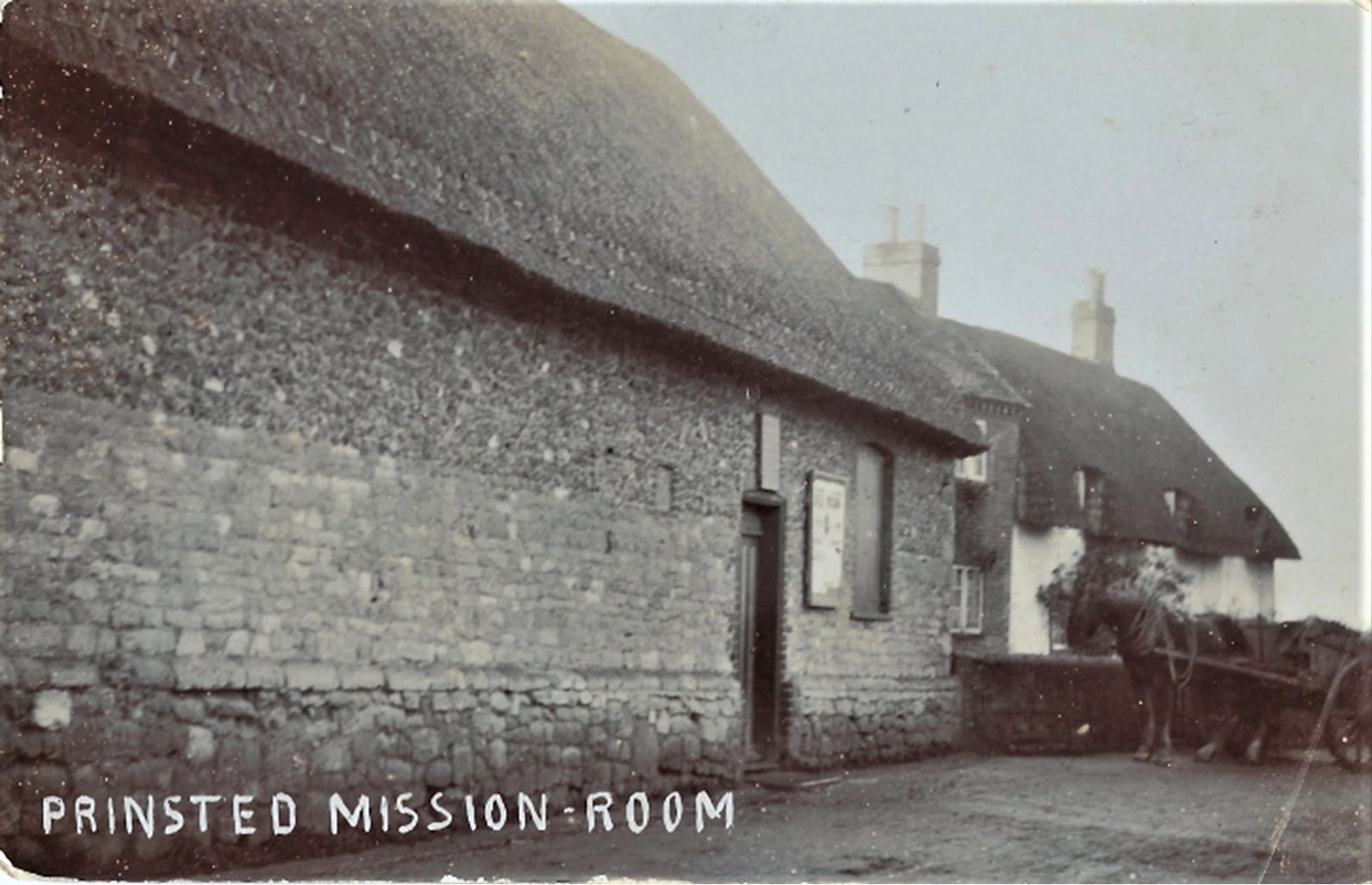
1855 to 1908
Prinsted Mission
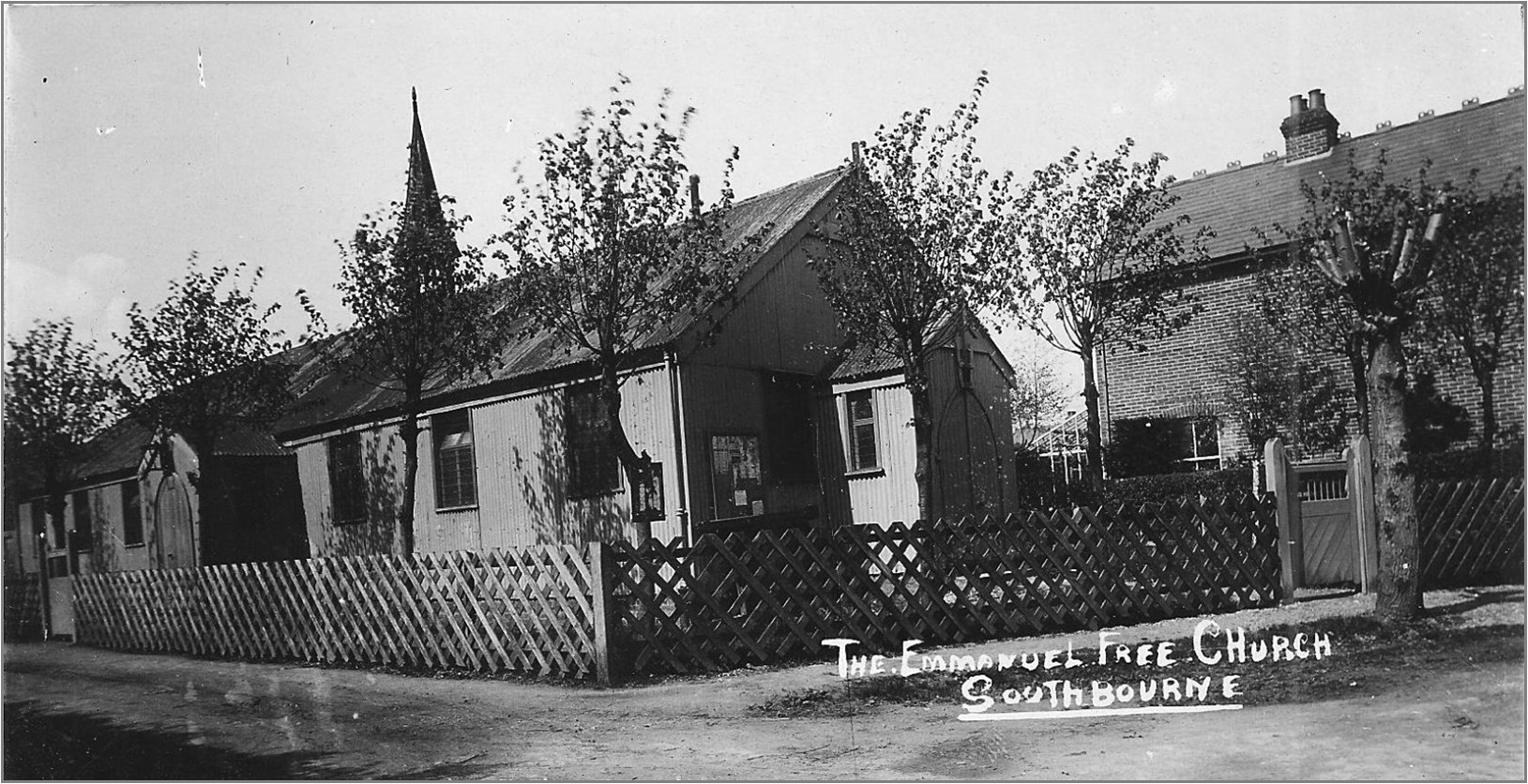
1908 to 1971
Tin Tabernacle
The Drive
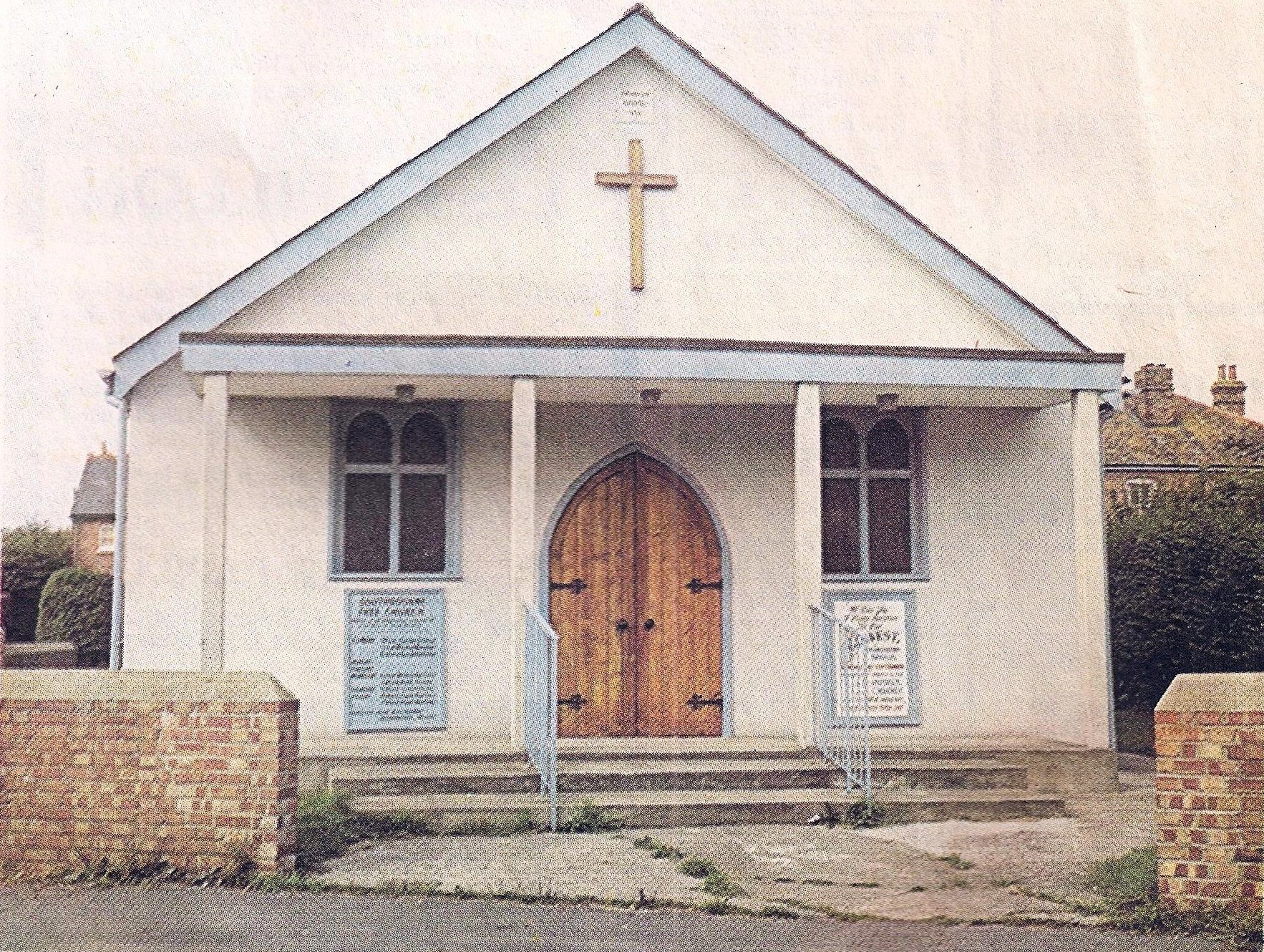
1971 to 2021
Refurbished church
with hall and toilets
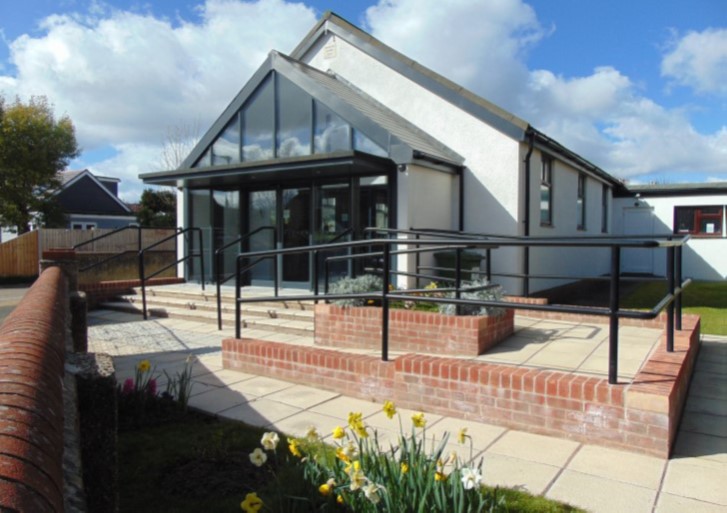
2022
New Glazed porch with disabled access
